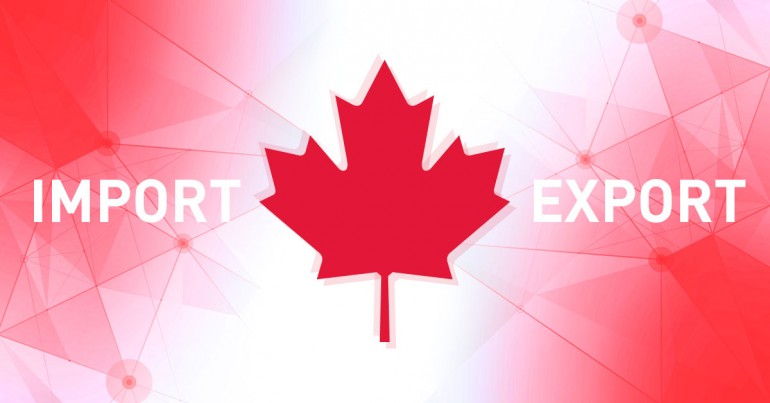
Canada Imports and Exports
Canada imports and exports an incredibly diverse range of products. Although due to geographical proximity, the United States remains its most important customer and supplier, the UK is still a significant trading partner. This is a relationship that is expected to be developed and expanded post-Brexit.
Discover how you can get a tailor made solution for your import/export finance needs!
The U.S tends to ignore the significance of its trading relationship with the country with which it shares a common border of over 2,400 miles even without including Alaska. Indeed, President Trump tends to treat Canada as a kind of “U.S. Lite” and was upset when their Prime Minister sided with Europe at a recent G7 meeting.

What is the Relationship between Canada and the UK?
Canada/UK relations are mostly warm since they stem from a shared history. The Canadian Prime Minister is on record saying that a trade deal will be simple to complete, and talks can begin the day after Brexit. Monsieur Trudeau clearly finds his terms of trade with the EU “complicated” due to the convoluted trade regulations that Canada has to comply with to deal with the EU.
Canada/UK trade accounts for 2.3% of Canada’s total, and the UK runs a surplus of approximately £1.2billion (imports £7.1 bn/ exports £8.3bn.). The former colony is the UK’s 8th biggest export market, while the UK is their 7th largest source of goods but second for provision of services.
Canada imports mostly aircraft parts, medicines and, somewhat surprisingly for such a resource rich nation, crude oil from th UK.
The current comprehensive economic and trade agreement between the EU and Canada currently opens wide ranging opportunities to British business and this will provide the basis of the post-Brexit arrangements. It is expected that the current 98% tariff free import of goods from the EU which combines the 91% tariff free import of agricultural products, a sector very closely protected by Canadian authorities, will form the basis of the UK agreement.
Canada provides a fertile business landscape to UK providers of goods and services. Its business and legal requirements are mostly derived from Britain and the business community is extremely pro-British.
It has a highly robust legislature and is highly ranked in anti-corruption “league tables”.

Exporting from the UK to Canada Post-Brexit
To export to Canada post Brexit, the regulations, while unlikely to be onerous in the longer term, will take some time to come into effect as the Government comes to terms with the upheaval that departure from the EU will bring. Dependent upon the terms of Brexit, emergency agreements may have to be put in place to ensure the continued smooth flow of goods and provision of services.
While Canada is similar to the UK in many ways which help British firms to deal with export regulations, Canada operates a Federal structure which, similar to trading with the U.S., means there are three levels of regulation to deal with.
The first (local) level can often be the most onerous, since it mostly deals with protection of local industries and resources. Often times these regulations may appear to run counter to the interests of the entire country. The provincial and Federal levels of regulation are often relatively easy to negotiate by comparison.
In order to open Canada as a new market that is clearly less saturated than the U.S., but shares several of its benefits such as state of the art logistical support and transport links, you will need to carry out in depth research about the market for your product or service, your ability to bring your “goods to market” at a competitive price, and that your packaging and labelling comply with sometimes hard to understand local requirements.
For exporters looking to penetrate new markets post-Brexit that are open and friendly to British companies and products, Canada is a sensible first step. The UK Government will be highly supportive to exporters and sees the Commonwealth as a natural starting point.

About Alan Hill
Alan has been involved in the FX market for more than 25 years and brings a wealth of experience to his content. His knowledge has been gained while trading through some of the most volatile periods of recent history. His commentary relies on an understanding of past events and how they will affect future market performance.”



